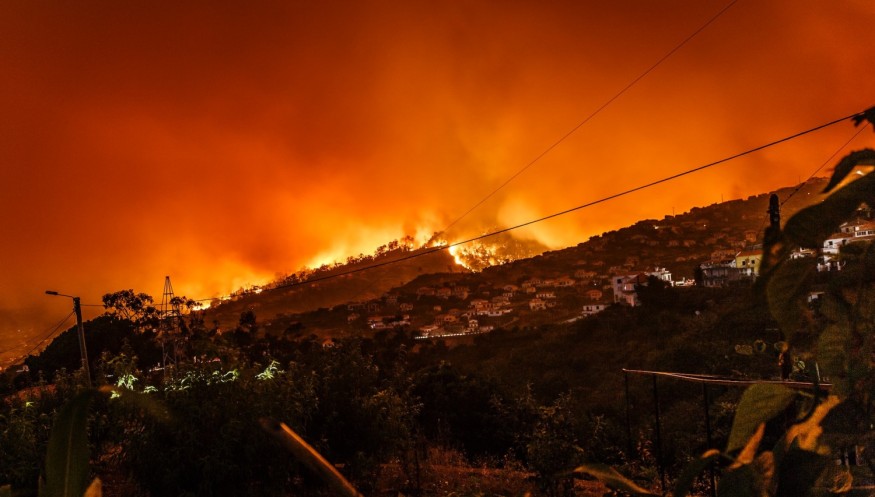North Lebanon forests are under threat by wildfires, drought, heatwaves, and other extreme weather events, according to several reports earlier this week.
The lack of rainfall, along with the mentioned natural disasters, has also fueled the environmental crisis facing the country, which has plunged into economic turmoil in recent years. Due to a faltering economy, Lebanon is reportedly unable to properly respond to the said events, especially large wildland fires.
Due to the extremely hot weather and prolonged dry conditions in the region, the lack of water supply from basins is also becoming a challenge for North Lebanon's inhabitants, the reports add.
In October 2019, Beirut's failure to contain the forest fires, along with other socio-economic issues, led to a nationwide anti-government protest, with demonstrations occurring in the capital and other cities and towns across the country.
Lebanon Forests Under Threat

Following scorching temperatures during summer, residents of Lebanon's mountainous Akkar region have raised concerns regarding climate change and water scarcity.
One of the residents is a 60-year-old farmer, Abdullah Hammud, who spent his life growing different agricultural produce. However, Hammud expressed current environmental problems are reportedly affecting his livelihood.
The catastrophic environmental disasters did not occur overnight but involves a series of events recorded in the past.
In 2020, major wildfires struck Akkar, which contained a forest and residential area covering 200 square kilometers (77 square miles). The region is also the habitat of 73 out of 76 tree species in Lebanon, according to Antoine Daher, an NGO head at the Council of Environment in the town of Kobayat, which also suffered from devastating forest fires.
Also Read : Day 5 of Largest Wildfire in Greece Raises Death Toll to 20 as Firefighters Tally 355 Forest Fires
Lebanon Water Stress
Lebanon is only one of the many countries affected by water crisis across the Middle East region, including Bahrain, Kuwait, Oman, and Qatar, according to the World Resources Institute, adding that water stress is also prevalent in North Africa and South Asia.
Aside from natural disasters, anthropogenic factors like increasing water demand not only by residential areas but also industries such as agriculture and livestock is causing a global water stress, the institute explains.
In the case of Lebanon, experts assert that the country has been grappling with severe water crisis for years already, with climate change blamed for causing less precipitation and the lack of storage infrastructure.
Lebanon Wildfire Crisis
The compounded impacts of extreme weather events such as heatwaves and droughts in northern Lebanon, as mentioned earlier, has led to the emergence of deadly wildfires in the country, especially in Akkar.
In recent weeks, frequent fires have resulted in at least eight people wounded, evacuation orders, and damaged homes. On Thursday, September 14, a separate wildfire in the form of a brush fire occurred in the village of Khirbet Bisri, located in Lebanon's Chouf region.
According to a World Bank report on Friday, September 15, Lebanon is need of sustainable forest management to reduce wildfire risk, with anthropogenic activities or stresses increasing the vulnerability of Lebanon's forests to climate change and natural disasters.
Related Article: Italy's Rampaging Wildfire Burns Down Sicilian Church to the Ground
© 2025 NatureWorldNews.com All rights reserved. Do not reproduce without permission.





